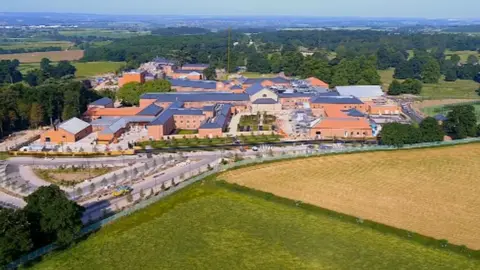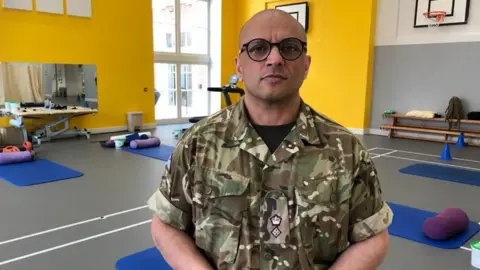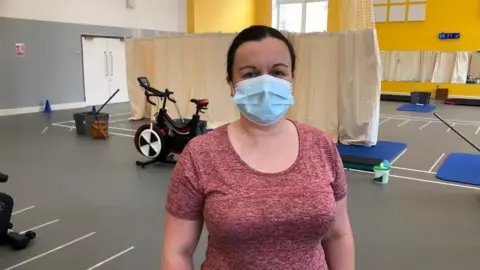Long Covid military rehab programme 'helping to save careers'
 DMRC
DMRCA specialist programme has been credited with saving the careers of military personnel with long Covid.
The three-step recovery programme for those in the forces is being run from the Defence Medical Rehabilitation Centre (DMRC) in Nottinghamshire.
Nearly all the patients that took part last year were able to return to work within three months.
A current patient, an RAF warrant officer, said it had offered a "light at the end of the tunnel".
Military personnel are able to take part in the programme if they are suffering with the long term effects of coronavirus.
They spend two weeks at DMRC - a Ministry of Defence facility in Stanford on Soar - before being sent home with a three-month recovery plan.
This is then followed up with a video call review with centre staff.

At the centre they are tested for signs of long-term organ damage and taught how to overcome the key symptoms - shortness of breath, fatigue, low mood and "brain fog".
So far, about 150 patients have taken part in the programme.
Lt Col Sadar Bahadur, a DMRC consultant, said more than 90% of the 55 patients who completed the programme last year were back in work after three months.
"This programme is helping to save military careers," he said.
Not being able to function in terms of fatigue and shortness of breath on minimal activities, that's going to affect the physical things that you can do.
"In terms of the brain fog and difficulties around cognition, that's going to affect processing in those areas of the military where you're required to do very high-level stuff.
"It's going to affect your ability to function."

Sarah Richard, a warrant officer at RAF Digby, caught coronavirus in October while working in a training role and said the long-term effects had severely disrupted her ability to function.
"I've been really frustrated because I can't get in and do what I want to do with my new job," she said.
"I struggle at home as well just with everyday things like cooking and mowing the lawn.
"They've helped me here to accept that that's where I'm at right now.
"Now they've helped me work out my base line and work from there and build myself up slowly.
"I feel like I've got a plan going forward and that feels like a light at the end of the tunnel where there wasn't one before," she said.

Follow BBC East Midlands on Facebook, Twitter, or Instagram. Send your story ideas to [email protected].
